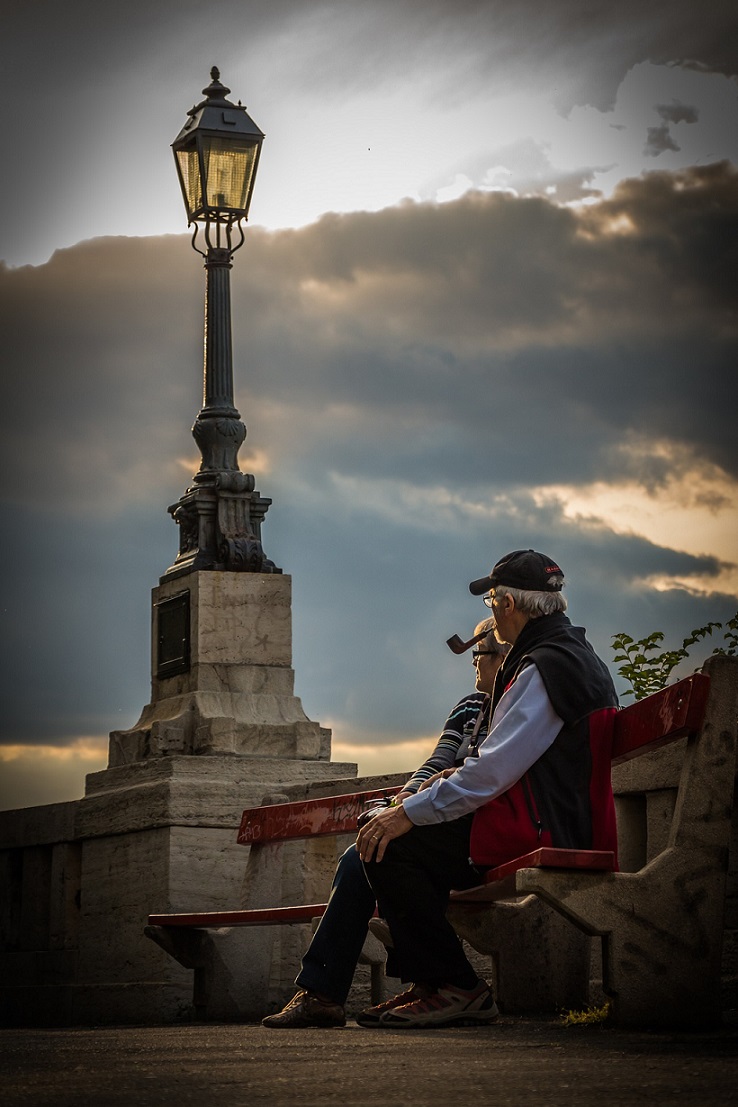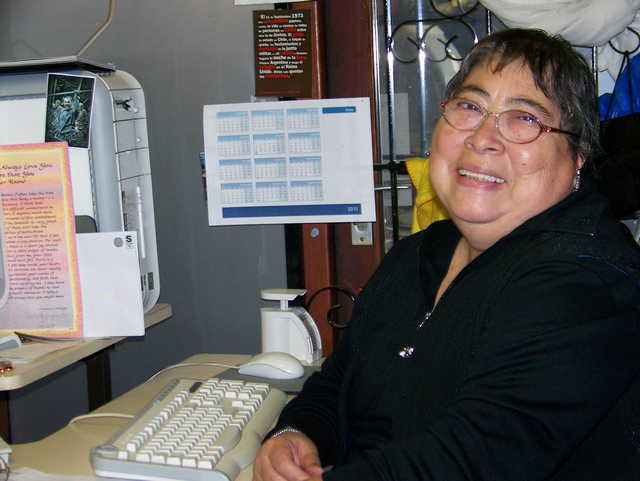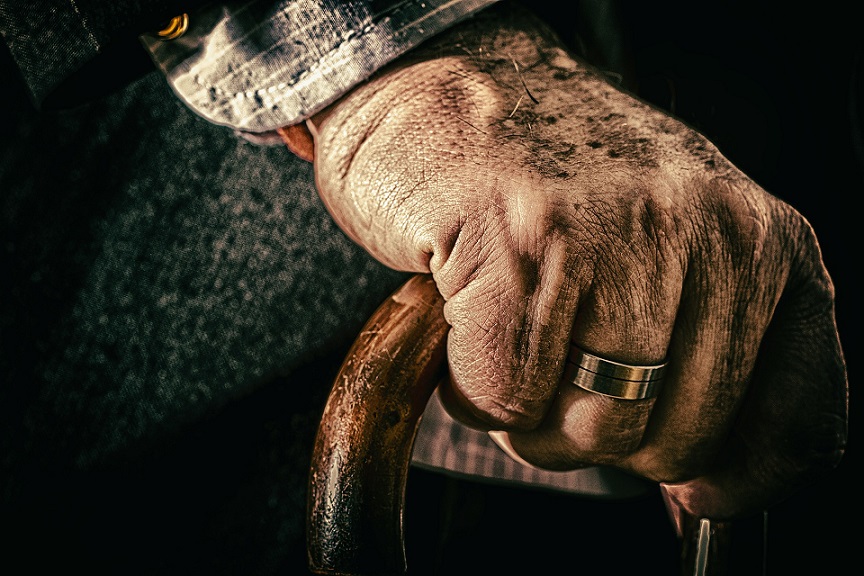For years they have put all their efforts into supporting their family. Today, at their age, they don’t want public recognition for their work, they just want to be treated fairly and to have help in dealing with their health problems. However, what many elderly people actually receive is the opposite. They are exploited and ignored by their own children.
.
 Ramón Alabau
Ramón Alabau
.
Amanda Silva, organiser of the community centre, The Golden Years (Los Años Dorados) (now closed down) says categorically, that when looking at the life of many elderly people who have come from Latin America, “Their situation in the United Kingdom is a sad one.”
It is invisible because of the refusal of the victims to report their own children. Their migrant status and their social condition make them twice as vulnerable. With no purchasing power and being dependent on their children, they are trapped in a country with a high standard of living and with a different culture and language.
Silva is well acquainted with a huge number of stories, not all of them positive. She still has memories of conversations that she is unable to forget. She has met Latin Americans who have been treated badly by their own children at work, and who have even been victims of abuse.
She says “There was one woman who wore a uniform when she did the housework, and who had to call her daughter “Mrs X” She was not allowed to eat at the table and had to sleep in the bathroom.”
Many elderly Latin Americans arrive in the United Kingdom under the pretext of coming on holiday, but some of them decide to stay on the suggestion of their children. This can be an unfortunate decision.
Without realising it, they end up working for nothing as cleaners, cooks, carers for their grandchildren, as well as doing other housework. Their situation is similar to slavery.
 The Golden Years is a reflection of Amanda Silva’s vocation, she is passionate about helping people who are in need and vulnerable.
The Golden Years is a reflection of Amanda Silva’s vocation, she is passionate about helping people who are in need and vulnerable.
The Chilean was forced to leave her native Chile because of Pinochet’s dictatorship and is an exile in the United Kingdom. She says that this social work “has opened my eyes and has made me realize how selfish people can be”.
“When you hear these stories, it makes you realise that you do not know your own people at all. She thought that one woman had a fall because of the bruises she had on her legs, but those injuries had been caused by the abuse that she was receiving from her relatives.
“They call them maids”
For these elderly people the family home becomes a jail. They do not speak English and, to make matters worse, they are not appreciated. “The grandchildren see how their parents treat their grandparents and they imitate this behaviour. The children ask their elderly relatives for money and are aggressive if they don’t get it.”
The institution The Golden Years had to close down two years ago because of budgetary cuts made by the local government in Lambeth. There, elderly people found a place where they could talk about their feelings, their problems and worries, as well as receiving education that helped them to grow as people and make themselves independent.
“We gave them confidence, which is vital if they are going to take action and stand up for themselves in the vulnerable situations they are in. The English classes that we offered were very important, they do not go out into the street because they cannot communicate, and this isolates them still further”.
But one of the attitudes that have most exasperated Silva is the passivity of the elderly people. “They would justify the abuse they receive. They see themselves as an inconvenience when it is their children who are benefiting from their presence. The elderly people did not complain about their troubles because they did not want to be a nuisance. Their stories knocked me for six.”
They blame themselves for their situation
Many adults receive government aid. They do not pay gas or electricity bills, taxes and other expenses. And they receive free lodging and a small amount of money (90 pounds a week) which allows them to lead a normal life. But this is a pipe dream for many Latin-American grandparents.

Forest says “The government allowance received by one woman was given directly to her daughter, and the woman herself received nothing […] Many people would rather go out for a drink with their friends than take their parents to the doctor. As the parents cannot communicate well, they suffer on their own at home.
Language is one of the greatest barriers to integration. Forest recalls how one man was held for two days as he could not answer when officers asked him for his name.
“A woman who we helped bought me a bunch of flowers with her first pay packet. She told me that she had found herself a job without anybody’s help, which she had managed to talk to her boss without a problem. I just gave her a big hug.”
She says that in this group of families of Central American origin she has found “the highest number of cases of exploitation and abuse of the elderly”.
No chance of employment
The British labour market does not make it easy for these adults to improve their situation. At the moment, unemployment in the United Kingdom is at an all time high, with more than two million people out of work, making it harder to find a job.
“Before it was easier, people of any age could find work washing up or cleaning offices, but now people over the age of 50 find it very difficult to get a job. Moreover, these jobs are quite physical, and many people are unable to do them.”
 She is worried by the current policies of Cameron’s government. She was one of the people who asked if the cuts will affect the money received by the elderly, but so far, she has had no reply.
She is worried by the current policies of Cameron’s government. She was one of the people who asked if the cuts will affect the money received by the elderly, but so far, she has had no reply.
“Adults who have not worked in the United Kingdom are supposed to be able to support themselves with the help that they receive, but it is very little money”.
She explains that the economic help given by the government is received when a person has been in the country for five years. “Imagine not having anything for five years and if you are treated like this by your family, you are condemned, you can’t do anything.” In spite of the work that she has selflessly carried out, Silva ends the conversation with The Prisma by saying that the Latin Americans are not collaborative people within their community. She also remembers how, because of the work she does, her compatriots have given her nickname “The Revolutionary”.
Despite all the work that she does for the community, she would still, even at her age, like to carry on helping people and watch each case progress. Nevertheless, she recognises that nowadays she cannot keep up the pace of life that she used to a few years ago.
(Translated by Jane Martin) – Photos:Pixabay












.jpg)












